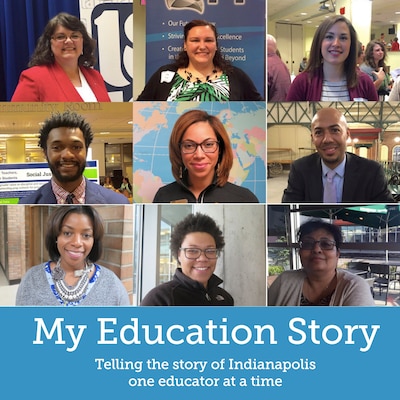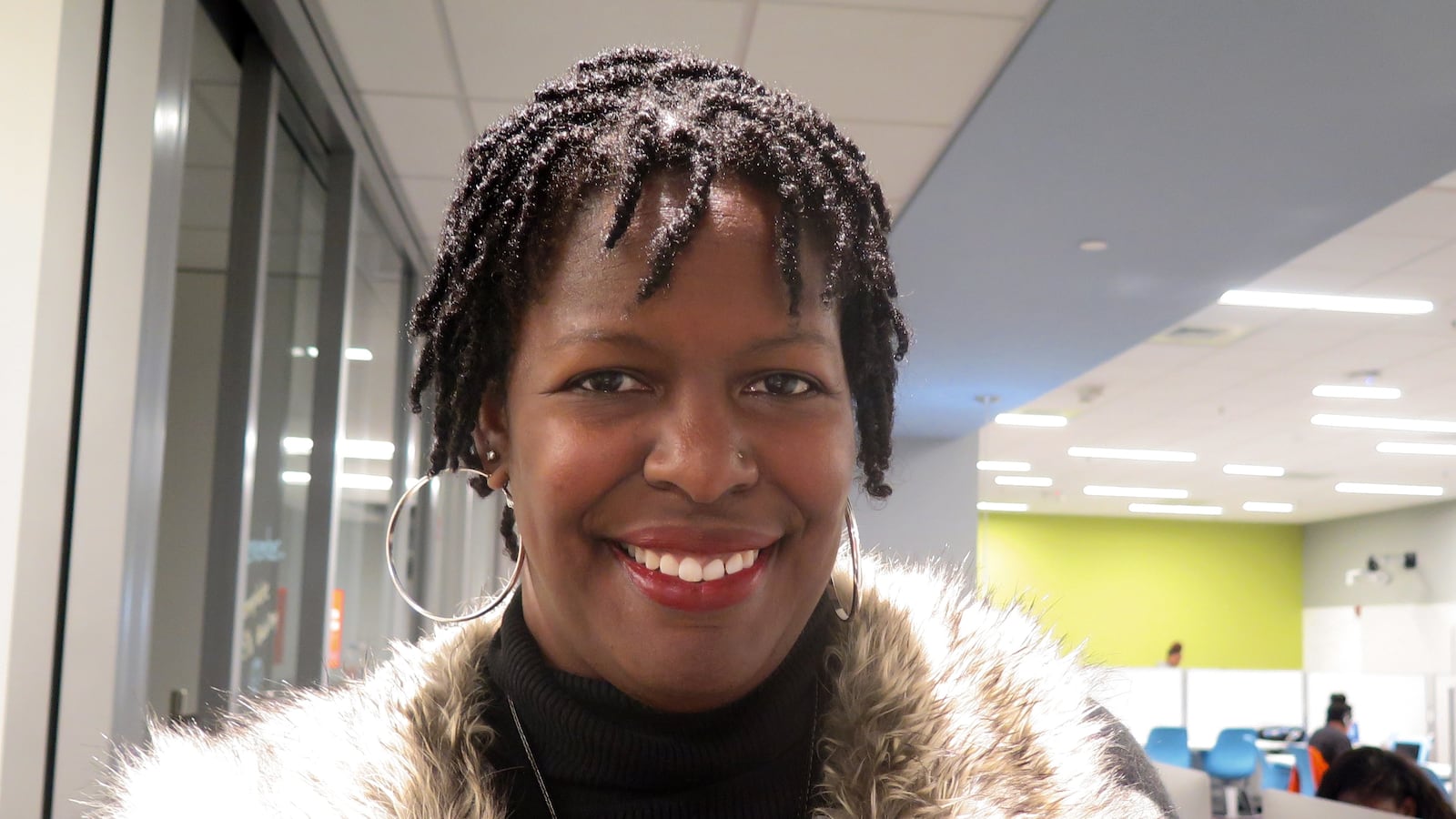
Chalkbeat journalists ask the people we come across in our work to tell us about their education stories and how learning shaped who they are today. Learn more about this series, and read other installments, here.
Teresa James-Robinson leads the Simon Youth Academy at Circle Centre. She previously worked at Arsenal Technical High School, Key Learning Community and the Orchid School. As a child in Dayton, Ohio, her mother went back to work to pay for her education at a Catholic school where she thrived academically but felt isolated from the largely-white community.
When I started school, I started in my little neighborhood school. But mother was looking ahead to high school and what she had found out was that the high school didn’t offer physics. It didn’t offer calculus. She put me in Catholic school.
My father — a blue collar, factory worker essentially — was able to put me through private school just by my mom going back to work. The Catholic school I went to was (near) the chichi neighborhood of Dayton called Oakwood. My grandmother was a maid in that neighborhood.
Initially I was put in the courses with all the other black kids. And I asked about algebra one day because I knew that I was supposed to be in pre-algebra in seventh grade. I mentioned that to my mom. I don’t know what happened, but all of sudden my schedule got changed. Then I was in class with no other black people.
I was the only black kid in my algebra class in eighth grade, which translated to being the only black kid in geometry in ninth grade. I was always the only black kid in my math class. I never saw anybody black all day, basically.
There came a time for me in high school where you kind of have to decide who you are — are you a black kid or are you a white kid? When it came time to decide, I decided I was black. The way that you make that decision is completely by where you sit in the cafeteria. There was a table where the black people sat.
I was on the student council. I was the co-captain of the basketball team. I was in all the AP classes. I was an insider, but I don’t feel like I was as plugged into my high school. That nostalgia that people have for high school, I don’t have it.
(As an educator), community is very important to me. I want people to feel like they belong. And providing a caliber of education that is worthy of paying for has always been my goal because I think of what I experienced, what I saw because I was fortunate enough that my parents made it a priority. I wanted to make it so that just by accident, by falling out of bed and going to the school that you had to go to every day, you would have a high-caliber, high-quality school.

